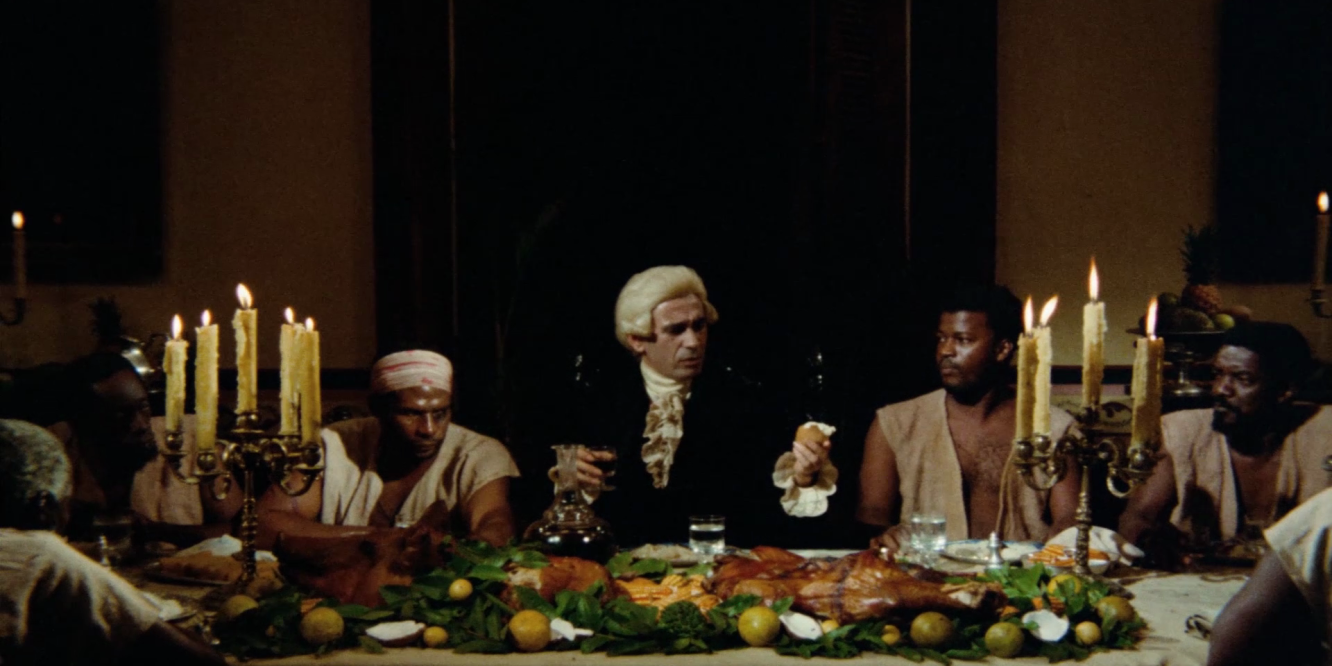Introducerea “Cinei de Tăcere” și a Conversației Mirtei Ibarra
Plasat pe fundalul Cubei din secolul al XVIII-lea, Cina cea de Taină dezvăluie o poveste dramatică în care încercarea unui nobil de a impune iluminare religioasă sclavilor săi provoacă neașteptat o rebeliune. Această experiență cinematografică unică este completată de o conversație perspicace cu Mirta Ibarra, actrița renumită, celebră pentru colaborările sale cu regretatul regizor Tomás Gutiérrez Alea.
Detalii eveniment și sinopsis film
Filmul este prezentat în spaniolă cu subtitrări în engleză și are un avertisment privind conținutul pentru adulți din cauza temelor intense. Având loc vineri, 14 noiembrie 2025, de la 18:30 la 21:30 la CCA Glasgow, proiecția este urmată de o scurtă pauză înainte de conversația live cu Mirta Ibarra.
În film, un conte binevoitor, dar naiv înșelat, decide să evanghelizeze sclavii săi prin recrearea iconică a lui Leonardo da Vinci. Cina cea de Taină. Selectând doisprezece sclavi pentru a interpreta ucenicii, conteațul aranjează o scenă la masă menită să învețe valori creștine. Cu toate acestea, încercarea de instrucție religioasă ia o întorsătură neașteptată când sclavii se revoltă în ziua de Vineri Mare, transformând evenimentul într-o critică puternică a colonialismului și a ipocriziei religioase.
Teme Cheie și Atenționări privind Conținutul
- Ipocrizia religioasă: Filmul contestă sinceritatea spiritualității impuse în circumstanțe opresive.
- Colonialism: Portretizează realitățile dure și luptele de putere din sistemul plantațiilor.
- Rebeliune Sclavă: Rebeliunea subliniază dorința de libertate și demnitate în mijlocul suferinței.
Filmul conține scene de violență istorică și intensitate psihologică, contribuind la explorarea sa profundă a conflictelor umane și a rezistenței.
Un dialog cu Mirta Ibarra: Amintiri și Moștenire
După vizionare, telespectatorii sunt invitați să participe la o oportunitate rară de a-o asculta pe Mirta Ibarra însăși. Conversația ei oferă anecdote încântătoare despre călătoria ei în cinematografia cubaneză și despre colaborarea ei cu renumitul regizor, Tomás Gutiérrez Alea—care este venerat pentru măiestria sa narativă și comentariul social.
În timpul sesiunii, a avut loc o proiecție specială a Abrazos, de Alejandro Valera, va fi prezentat ca un omagiu adus clasicului Căpșuni cu Ciocolată, un alt film iconic în care joacă Ibarra. Acest omagiu leagă temele identității culturale, expresiei artistice și modelarea cinematografiei cubaneze prin decenii de realizare cinematografică transformatoare.
Contextul istoric: cinematografia cubaneză și comentariul social
Cinema cubanez a fost dintotdeauna un mediu puternic pentru critica socială, adesea îmbinând arta narativă cu reflecția politică și culturală. Filmele lui Tomás Gutiérrez Alea, inclusiv Cina cea de Taină, sunt exemplare în acest sens, expunând legatele coloniale și sporind gradul de conștientizare cu privire la nedreptățile sociale.
Această tradiție de a folosi filmul ca dialog cu istoria continuă să rezoneze, subliniind rolul crucial pe care îl joacă artele în conservarea memoriei și inspirarea schimbării. Mirta Ibarra, ca figură cheie în acest curent, unește trecutul și prezentul prin împărtășirea experiențelor directe și iluminând profunzimea din spatele acestor opere cinematografice.
A Brief Table of Related Cuban Film Milestones
| Year | Film | Director | Significance |
|---|---|---|---|
| 1976 | Cina cea de Taină | Tomás Gutiérrez Alea | Explorează colonialismul și revolta sclavilor |
| 1993 | Căpșuni cu Ciocolată | Tomás Gutiérrez Alea & Juan Carlos Tabío | Abordează toleranța culturală și identitatea |
| 2005 | Abrazos (Los Van Van Video) | Alejandro Valera | Omagiu moștenirii culturale cubaneze |
Turism Internațional și Implicare Culturală
Filme ca Cina cea de Taină serve as more than just cinematic experiences: they provide rich cultural context that enhances visitors’ appreciation of Cuba’s history and social landscape. For travelers drawn to storytelling that navigates the crossroads of art, history, and resistance, these works add depth to the exploration of destinations known for their vibrant heritage.
Festivalurile și proiecțiile cultivă interesul internațional, invitând turiștii să interacționeze nu doar cu plajele și străzile istorice, ci și cu curentele intelectuale și artistice care definesc regiunile de astăzi. Această fuziune de cultură și turism lărgește experiența vizitatorului dincolo de atracțiile de suprafață, încurajând o imersiune atentă.
Potențiale influențe asupra turismului maritim și de croazieră
Although Cina cea de Taină se concentrează pe lupte istorice din interiorul țării, destinațiile de pe malul mării din Caraibe atrag frecvent vizitatori care sosesc pe mare, căutând aventuri care combină descoperirea culturală cu închirierea de iahturi sau bărci. Îmbinarea evenimentelor culturale și a activităților maritime prezintă oportunități de a alinia istoria vibrantă de pe uscat cu explorarea oceanică.
Pentru navigatori și entuziaști ai iahturilor, porturile din apropierea centrelor culturale oferă ocazia de a trage pe uscat și de a se bucura de proiecții, discuții și alte evenimente care îmbogățesc itinerariul de navigare. Această dinamică indică sinergii interesante între moștenirea artistică și turismul nautic, extinzând ceea ce pot oferi aventurile pe apă.
Concluzie și Notă Serviciu GetBoat
În concluzie, Cina cea de Taină offers a potent cinematic journey into themes of faith, power, and rebellion, shadowed by the historical realities of 18th-century Cuba. Paired with an engaging conversation by Mirta Ibarra, the event invites deeper reflection on Cuban cinematic legacy and its ongoing cultural resonance.
For those navigating the Gulf and Caribbean seas, combining yachting with exploration of such cultural expressions can transform an ordinary trip into a well-rounded adventure. This blend enhances the charm of marinas, waterfront destinations, and beachside communities.
GetBoat.com is an international marketplace for renting sailing boats and yachts, offering diverse options to suit every taste and budget. Whether seeking peaceful lakes, vibrant marinas, or the turquoise ocean, GetBoat can provide the perfect vessel to navigate and enjoy destinations where history and sea come together seamlessly.

 Exploring The Last Supper Film and a Conversation with Mirta Ibarra">
Exploring The Last Supper Film and a Conversation with Mirta Ibarra">
